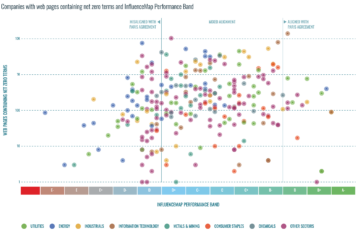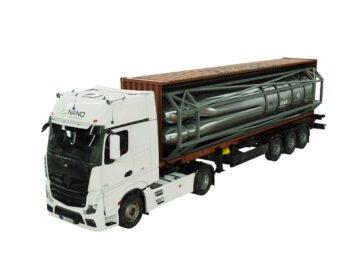
This article was adapted from the Climate Tech Weekly newsletter, delivered Wednesdays.
Climate tech funding keeps coming fast and furious: We’ve officially topped $30 billion for the year, according to two separate reports published this week by researchers on either side of the Atlantic Ocean (from Dealroom.co and London & Partners and Pitchbook). That figure is double the amount of disclosed deals during the first half of 2021, and we’ve still got a quarter to go.
Much digital ink has been spilled analyzing why everyone is so hot and bothered by climate tech. And that’s actually one reason: It’s hotter, and it’s bothering more people. Actually, bothering is too mild of a term. We can’t ignore the irrefutable signals the planet is sending humankind in the form of super-powered storms (such as the ones that hit the West Coast and East Coast this week), the wildfires, droughts, searing temperature increases, sea-level rise and so forth.
Another big thing is tipping in climate tech’s favor. The “sheer economics” are also impossible to ignore.
“Our old economy of digging up and burning old dinosaur bones, which is literally how we power our economy right now, is just expensive,” said Chris Sacca, co-founder of Lowercarbon Capital, which has invested in companies such as Lilac Solutions (lithium mining), Solugen (chemicals from enzymes, not oil) and Remora (capturing CO2 from trucks). “The math is so much clearer that using the sun to power our economy is much cheaper. My heart is warmed when I see … CFOs literally doing cost-benefit analysis, not triple bottom line, but on the traditional GAAP bottom line, realizing, ‘This makes us money.’”
My heart is warmed when I see … CFOs literally doing cost-benefit analysis, not triple bottom line, but on the traditional GAAP bottom line …
Sacca’s remarks came during a VERGE 21 keynote conversation with his long-time colleague Andrew Beebe, managing director of Obvious Ventures, which has backed a diverse portfolio ranging from carbon accounting software firm Sinai Technologies to EV charging service provider Amply to satellite imagery company Planet. Both investors have dedicated the past two decades to the cleantech and climate tech movements.
Sacca, an early backer of companies including Stripe, Twitter and Uber, said it took a matter of days for his firm to close its $800 million fund — turning away billions of dollars from potential investors that it couldn’t accommodate. He said he was struck most by the non-partisan appeal of the climate tech value proposition. Guilting and shaming organizations into buying these technologies isn’t effective.
“They get there by wanting to take pride in what they are doing and being able to explain to their partners and their kids and their employees, ‘Hey, this is why we are a positive actor in the planet,’” Sacca said. “And that works pretty well. Or they get there by sheer greed, which I think is the most positive motivating factor, most effective factor in changing systems on this planet.”
The interest of corporations in partnering with, investing in or, in some cases, acquiring climate tech startups that could disrupt existing models is also fueling the movement.
Sacca offered the example of Heart Aerospace, which is developing a 19-seat electric airplane that promises to revive the once-thriving network of airlines that used to connect smaller communities in the United States. (More than 1,500 older 19-seat planes have been retired in the past 30 years because the economics didn’t make sense, according to Heart.)
Although the company encountered many skeptics among traditional aviation companies, including Boeing and Airbus, in July it disclosed a $35 million Series A funding round alongside orders for 300 planes by United Airlines and Mesa Air Group (both lead investors along with Breakthrough Energy Ventures). Lowercarbon invested in this round, as well as the seed stage. The first ES-19 for commercial use is slated for delivery by 2026. “The same people who said he would never get it done now have put in billions of dollars of orders for his plane because it makes their unprofitable routes profitable,” Sacca related, referring to Heart CEO Anders Forslund.
His bottom line: “It no longer has to be mutually exclusive to have a massively positive impact on the planet and make a ton of money.”







